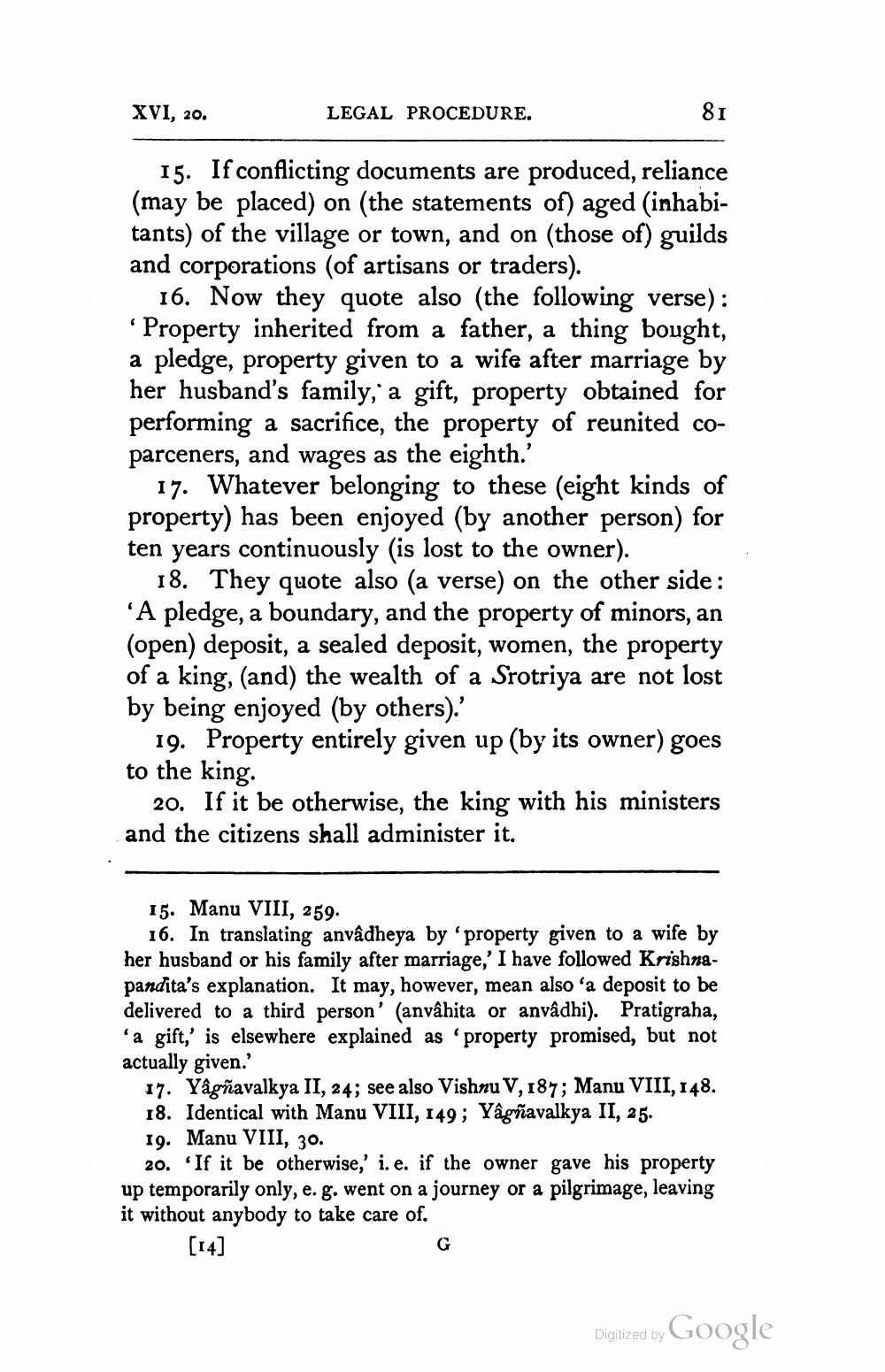________________
XVI, 20.
LEGAL PROCEDURE.
81
15. If conflicting documents are produced, reliance (may be placed) on (the statements of) aged (inhabitants) of the village or town, and on (those of) guilds and corporations (of artisans or traders).
16. Now they quote also the following verse): Property inherited from a father, a thing bought, a pledge, property given to a wife after marriage by her husband's family,' a gift, property obtained for performing a sacrifice, the property of reunited coparceners, and wages as the eighth.'
17. Whatever belonging to these (eight kinds of property) has been enjoyed (by another person) for ten years continuously (is lost to the owner).
18. They quote also (a verse) on the other side: A pledge, a boundary, and the property of minors, an (open) deposit, a sealed deposit, women, the property of a king, (and) the wealth of a Srotriya are not lost by being enjoyed (by others).'
19. Property entirely given up (by its owner) goes to the king
20. If it be otherwise, the king with his ministers and the citizens shall administer it.
15. Manu VIII, 259.
16. In translating anvâdheya by 'property given to a wife by her husband or his family after marriage,' I have followed Krishnapandita's explanation. It may, however, mean also 'a deposit to be delivered to a third person' (anvähita or anvâdhi). Pratigraha, 'a gift,' is elsewhere explained as 'property promised, but not actually given.'
17. Yâgñavalkya II, 24; see also Vishnu V, 187; Manu VIII, 148. 18. Identical with Manu VIII, 149; Yâgñavalkya II, 25. 19. Manu VIII, 30.
20. If it be otherwise,' i. e. if the owner gave his property up temporarily only, e. g. went on a journey or a pilgrimage, leaving it without anybody to take care of.
Digitized by Google




